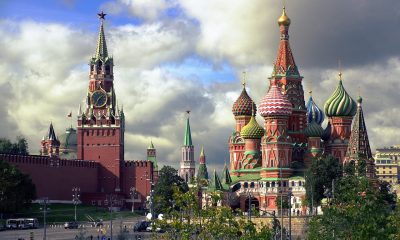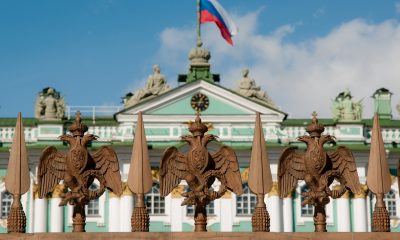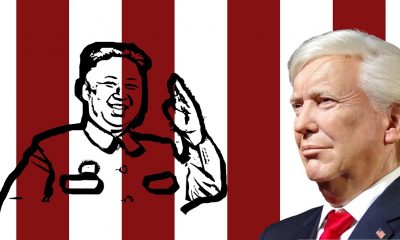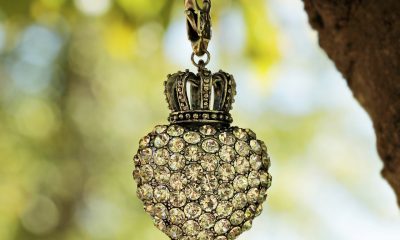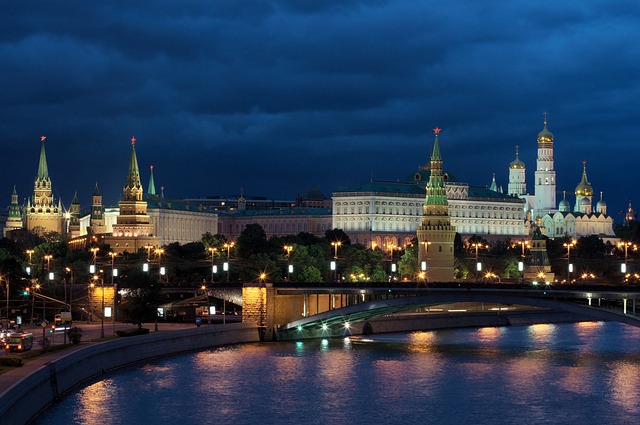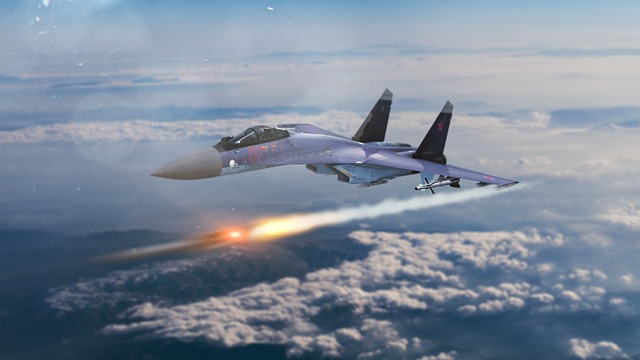Opinion
Putin’s Russia: Steering back to Soviet Union
Two years back, large number of angry young crowd took to the streets and shouted “Russia bez Putina” (Russia without Putin). It was the first time such a protest was ever seen since the last days of the Soviet Union when around half a million people took to the streets to bring down the sovietskiy soyuz (Soviet Union)
Putin declared his victory and promised to return to Kremlin with a hint of Soviet Union pledging stability and a greater Eurasian Union with former Soviet republics. Many Russians did not welcome his return to power, which turned into a massive protest against United Russia’s authoritarian regime.
Just before the elections, we surveyed a number of Russians about their favourite choice for the next president. Only 20% said Putin is their favourite, however everyone was sure that he is set to return to the power. Despite unpopularity, he was the unchallenged supreme leader who knows how to take Russia forward but in his own way and no other way. After the elections, we again surveyed a number of Russians and same people who did not like Putin, had however voted for him.
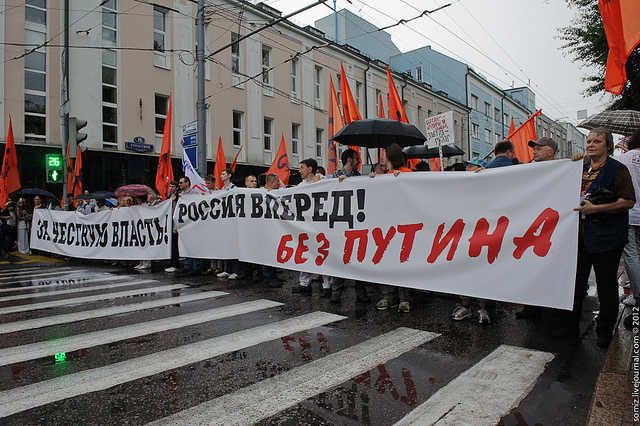
Lev Gudkov of the Levada Centre, an independent polling-research organisation, dubbed this behaviour and reaction against monopolistic and authoritarian regime as a part of a Soviet legacy. It is pushed due to lack of alternatives rather than a common vision for a change. He describes Russia as a hybrid state, smaller, more consumerist and less collective than the Soviet Union. Even though Soviet ideology has gone, but the mechanism, which politicians uses to retain in power, is still in use.
Recently Vladimir Putin announced merging of Radio “Voice of Russia” and reputed Russian news agency RIA Novosti into single unit stripping its semi independence making it more pro Kremlin. Not just the media, but courts, security services, police and primary education has been bent to praise Kremlin and his policies.
Soviet Union never encouraged elections and forming political parties was not allowed, Communist Party of Soviet Union remain unchallenged until March 1989, when Liberal Democratic Party of the Soviet Union was formed. Almost with the same mind-set, Russia, though a democratic country, could not become a well-functioning multi-party democracy. Putin silently crushed any possible political rival coming onto his way in the initial stages itself. Only recently, Putin released Mikhail B. Khodorkovsky, former Yukos oil tycoon and once aspiring political rival who was held for 10 years in jail as a political prisoner.
Russia might be a democratic country now, but its election system is so opaque that the ruling party can easily play with the things to remain in power democratically. In the last elections, reports claimed nearly 140% people in Rostov voted for Putin. Similarly, in Chechnya, nearly 99.5% people came out to vote and 99% of them voted for Putin. At this, the opposition blogger Alexei Navalny, who called the ruling party, as “The Party of Crooks and Thieves,” was detained near the notorious Lubyanka Square, the headquarters of the FSB security services (previously the KGB).

Steering back to Soviet Union
Putin’s intentions are not to make another Soviet Union, but to remain in power, for which he inherits the tactics from Soviet Union very well as a former KGB man. He said, “One who does not regret the passing of the Soviet Union has no heart; one who wants to bring it back has no brain.” As soon as he came, he gave his country what the people wanted: High incomes, stability, more consumer goods and freedom to travel.
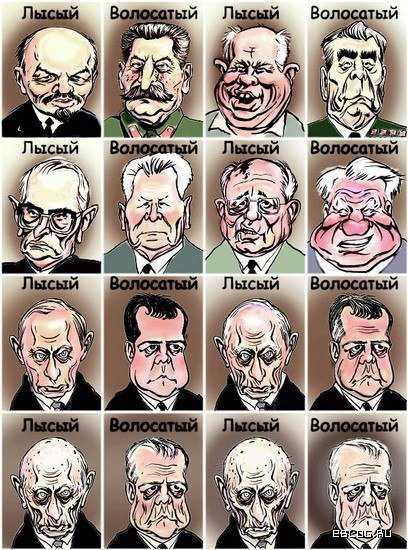
They say in USSR/Russia always a лысый (bald) premier is replaced by a Волосатый (hairy). However they mock the Putin-Medvedev duo later in the photo.
He might not be the cleanest politician in the country and will not allow anyone to challenge him. It is not known for how long Putin-Medvedev duo will keep ruling world’s largest nation by size. His popularity is on decline and the domestic politics might be messed up. Nevertheless, he is already the super star in the international politics. Not sure about Russians, but the world needs him. He is the man who keeps the guts to challenge American dominance and monopoly one-on-one. It can be seen from the way he took the lead and diplomatically prevented the United States and its allies from attacking Syria, and the way he used his economic muscles and temporarily managed to bargain Ukraine to tilt towards east leaving behind the European Union.
Some call him authoritarian whereas some call him democratic; Putin has bent everything in his favour. One may also look at all this from a different angle. The chaos that followed the collapse of Soviet Union is now stable; Russia is second largest economy in Europe in terms of GDP (PPP) and largest exporter of Gas to the continent.
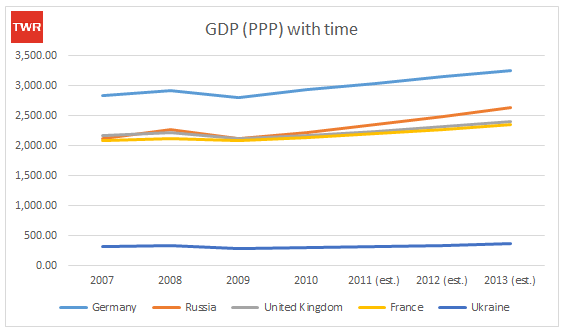
After 70 years of communist regime, may be Putin’s authoritarian rule was necessary? In one of our previous article, we had shown some survey results from the countries of former soviet republic and the results were surprising. Only 35% Ukrainians and 50% Russians approved the shift to Democracy from Communism and 34% Ukrainians and 42% Russians approved Capitalism.
Probably Russia was not ready for a sudden shift and Putin grasped the public mood. Gradually with the course of time, Russia should see the change and experience the true democratic system, or otherwise we have Putin who will decide the future of politics in Russia.
In the end, I only want to say…
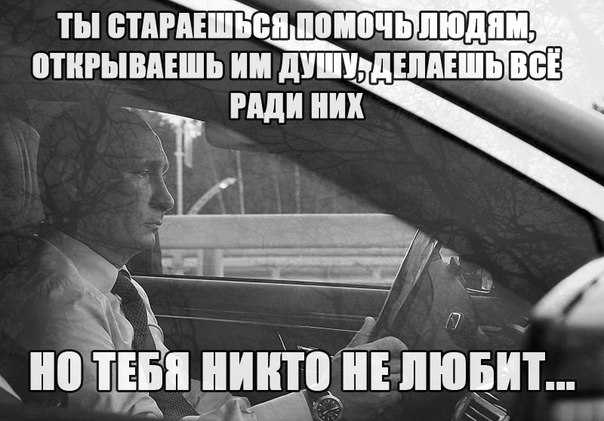
You try to help people, open your soul for them, you do everything for their happiness. But nobody loves you…
China
Nepal Hindu Rashtra: Time to Wrap Up Communism?

Nepal abolished the Constitutional Monarchy in May 2008 and declared itself as a Federal Democratic Republic. There was a new hope in Nepal as it was becoming world’s newest democracy even though it had dissolved the Hindu Rashtra. However, the democracy in Nepal immediately got into the tight grips of leftists and communists backed by China. It has been almost 12 years since monarchy was abolished in Nepal. Interestingly, the Himalayan country has already seen 11 Prime Ministers in this period. Thus, leaving the Nepalese people still yearning for good and stable governance.
Re-establish Hindu Rashtra
As the political instability is growing in Nepal, people are demonstrating concerns about the future of the country. In fact, Nepalese citizens are unhappy with frequent interference by China and India influencing its unstable communist regime. More voices are now growing in support of reinstating the Monarchy and declaring Nepal as world’s only Hindu Rashtra (which by default offers full religious freedom to other religious minorities as per Hindutva concept of Sarva Dharma Sama Bhava – all paths lead to one).
Former Deputy Prime Minister of Nepal, Kamal Thapa said that if political parties do not recognize the seriousness of reinstating the monarchy, then the country will head for a period of darkness. “Recently, we’ve had high-ranking officials from India and China come to Nepal to try and solve problems within the ruling party,” he said. “We cannot let others dictate what we want to do.”
Communist Party All Set to Suppress Protests, By Force
Kamal Thapa has firmly demanded an all party meet to discuss reinstating of monarchy. Throughout the month of December, 2020 Nepal has seen anti communism protests across the country in support of reinstating the monarchy and Hindu Rashtra. Most importantly, the demand has become a nationwide mass people’s movement. So much so that the communist regime had to send a directive to 77 districts in 7 provinces. The directive suggests suppressing the protests by force. Nevertheless, Rashtriya Prajatantra Party and other royalist groups have ignored this threat from the communist regime. Protester groups have pledged to strengthen the protest in the coming weeks.
Nepal: Demonstration held in capital Kathmandu, demanding restoration of monarchy in the country. pic.twitter.com/TFjmKu9U9Z
— ANI (@ANI) December 5, 2020
Role of China – Hope for Communism in Nepal
China’s ambassador to Nepal is known to have very close relationship with Nepalese Communist regime. In fact, She has been super effective in tilting Nepal’s posture towards its ideological partner, China. One of her greatest achievements in 2020 was artificially manufacturing a border conflict between Nepal and India. Consequently, souring relations between the two Hindu majority nations. In addition, she managed to silence Nepal’s communist government after China took one of Nepal’s border villages under its control. However, recent political turmoil in Nepal and a renewed demand for reinstating of Hindu Monarchy is showing that the situation is now out of Chinese hands
Role of India
Year 2020, was not a good year for India and Nepal relations. India was busy in controlling domestic Covid cases. On the other hand, China had launched an invasive campaign into Indian territory. In addition, India is always busy with Pakistan on its western borders. However, the surprise came to India when China was almost successful in creating a new border tension between India and Nepal.
Those who do not know about Indian government should note that the current ruling party in India finds itself ideologically opposite to communism. This further creates differences between the two countries.
Communist party in Nepal has blamed India for supporting the ongoing anti communism protests in Nepal. However, former advisor to Nepal’s PM has suggested there is no proof that India is fueling pro Monarchy, anti communism demand in Nepal.
Nevertheless, There are certain influencers in India who have, in their personal capacity, expressed support for reinstating the Hindu monarchy. Yogi Adityanath, who is the Chief Minister of an Indian state bordering Nepal, said in 2015 that Nepal should declare itself a Hindu Monarchy. Readers should note that in 2015 Yogi Adityanath was not the Chief Minister yet. However, today he is not only popular in south of Nepal, his popularity is growing in Nepal as well.
Will The World See the first Hindu Rashtra?
It is difficult to answer this question at this moment. However, Nepalese communist government could not resolve the political instability and in December 2020 Nepalese government dissolved the parliament. Nepal will see next elections in April – May 2021. Hopefully, the world will see Nepal’s 12th Prime Minister in 13 years or may be a Hindu King? Royalists and protester groups have expressed confidence in winning next elections. We have our eyes on Nepal for updates.
Opinion
America’s Justice System – The Need For Reform
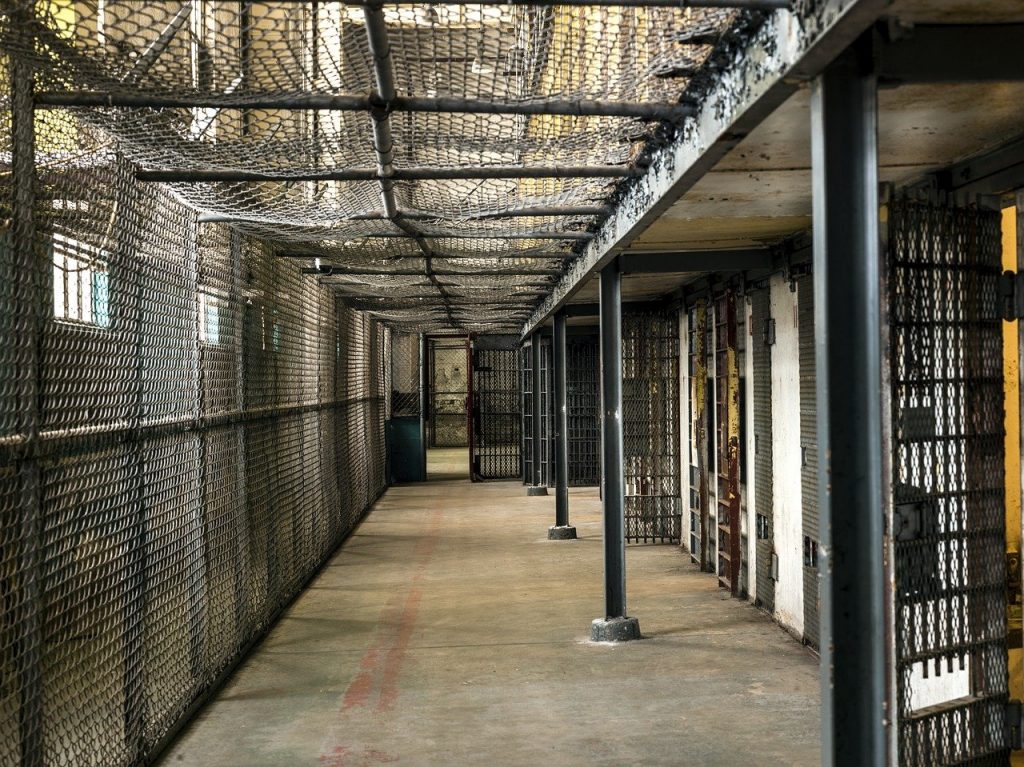
A recent poll by the National Opinion Research Centre revealed that 95% of Americans favour vital criminal justice reforms. This is hardly surprising, given that several people of varying racial, partisan and ideological dispositions have called out the justice system over its many failures throughout the years. Most Americans received the Trump Administration’s First Step Act as a step in the right direction, as about 60% of people approved the criminal justice reform bill according to a 2018 poll. However, many people still believe the justice system’s approach to crime is ineffective and needs dire change, and these are some reasons why.
Prison population and funding concerns
Research conducted revealed America has about 2.3 million prisoners, making the US the country with the highest incarceration rate globally. Experts estimate that the country’s prison population has grown by a whopping 340% over the past three decades; new prisoner admissions into jails are higher than prisoner release numbers. The cost of maintaining the nation’s prisons at taxpayers’ expense has inspired a lot of backlash and calls for budget cuts. According to research, slashed correction spending was the preferred option by most states to balance their budgets and redirect spending to other areas.
Minimum mandatory sentences
Minimum mandatory sentences are statutes that force judges to give defendants convicted of a crime the minimum prison sentence. Mandatory sentences rob judges of the traditional way of considering the defendant’s character and the unique circumstances surrounding offences. Even when represented by criminal defense attorneys with many years’ experience, defendants often succumb to prosecutors’ pressure to plead guilty or face more severe charges with higher mandatory sentences. The guilty plea bargain consequently resolves about 95% of both federal and state court cases. Research also shows that about half of inmates in federal prisons are doing time for drug offences- causing overpopulation in the prison system.
Growing number of people killed by the police
An estimated 1000 civilians are killed by police officers annually in the US. The frequency of police brutality cases over the years requires immediate reform to the American justice system. Data suggests that the incidence of fatal police shootings is higher among African-Americans than any other ethnicity, inspiring movements like the ‘Black Lives Matter’ campaign to press on with protests for significant police etiquette reforms towards coloured minorities. The police force faces incessant accusations of racial profiling, indiscriminate use of power, and poor discretion, which has led a reported 58% of Americans to think policing needs major reforms through measures like better-trained officers, and wearing body cameras.
Evolving public opinion on crime
Research released by the Sentencing Project and The Justice Policy Institute reveals that more people in conservative states are embracing preventive, rehabilitative, and alternative sentencing options for non-violent offenders. Most Americans now view the prevention of crime as the most vital function of the justice system, as 77% of Americans think that focusing more on character education and after-school programs would be cost-effective by reducing the number of people going to jail. Almost two-thirds of Americans also believe in the need for lighter sentences with more useful, reformative programs in prisons that will benefit inmates upon release. Therefore, support for harsh penalties that harden criminals and make them a more significant menace when reintroduced into society has dwindled.
Opinion
The History Question: Is It Better to Remember or to Forget?
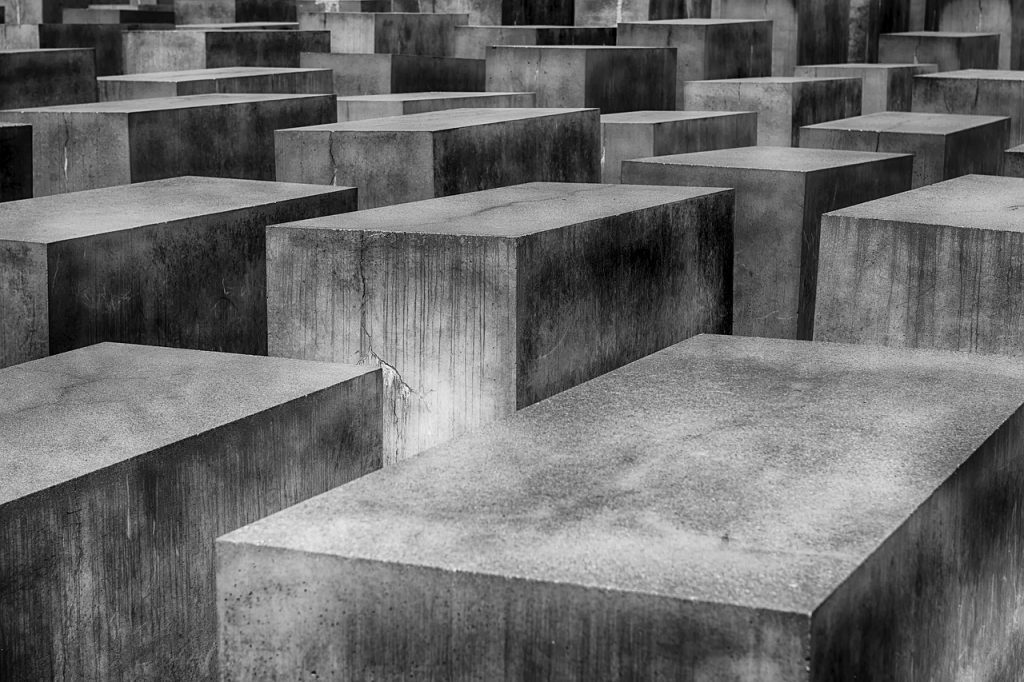
Years ago, a philosopher by the name of George Santayana said a phrase that fuels many debates to this day. His original saying is “those who cannot remember the past are condemned to repeat it”, although, many sources now present it as variations of “those who cannot learn from history are doomed to repeat it”. The latter definitely has more substance to it in the light of the ongoing debate about how much history we should be learning and how.
Is It Better to Remember or Forget About the Past?
On one hand, Santayana was right. Learning about the past is essential in order for people to progress. One also shouldn’t overlook the importance of remembrance and paying respects to the dead, both those who pushed the progress forward and those who have fallen victims to major tragedies that could and should have been averted.
The main argument in favor of learning about the past is that its knowledge is necessary for preventing the same thing happening in the future. Having it one can see the signs and stop the tragedy before it gains momentum.
That’s sound in theory, but the reality is always different. For example, today people are surely forgetting, and the much-critiqued education system is only partially at fault here. Even the greatest of tragedies weren’t spared this fate. It’s a proven fact that about two-thirds of millennials today don’t know about the Holocaust, and this number is surely greater for generations that follow them. In the school history course, the subject of one of the greatest disasters in history is barely touched, if touched at all. And outside of a history classroom, one can only see small, but terrifying, glimpses of it at the Holocaust Museum and other museums that rarely attract many visitors. And now we are witnessing a rise of antisemitic crime.
Are these two facts related? Does the lack of awareness about the horrors done in the name of Aryan supremacy contribute to the fact that right-winged extremists seem to be gaining popularity again?
It does, but by how much? That is the question that no one can truly answer.
And what about other genocides? The Holocaust had the highest death toll, but it was far from the only genocide in history. And quite a few of those happened after World War 2 and before the memory of the atrocities against the Jews began to fade. This means that while forgetting history is a factor, it’s not the deciding factor in its repeats.
But what is that thing responsible for the reenactment of past mistakes and tragedies?
Learning. This is the important thing that is most often overlooked when citing Santayana’s famous saying. It’s not enough to learn about the past and know the facts of things that happened. It’s important to learn from those facts and put in place protections that will prevent them from happening again. And this is something that humanity, as a whole, has yet to succeed in doing.
Dwelling in the Past Can Be Just As Bad
One also shouldn’t forget that there is such a thing as “too much history”. The Bosnian War and genocide that happened there in the 1990s is a vivid example of how the past can be exploited by political powers. Used as a part of propaganda, which fueled the war, history can become a weapon in the hands of those who want to use it for their own goals.
And this is what humans have been doing since the dawn of time. There is always someone who will use any means necessary to achieve whatever it is they wish. This results in wars and genocides, and hundreds of smaller but no less devastating tragedies.
Therefore, the problem isn’t whether people should be learning history but human nature itself. Perhaps, teaching this can help fix this fundamental flaw and truly stop the worst of the past from repeating.


